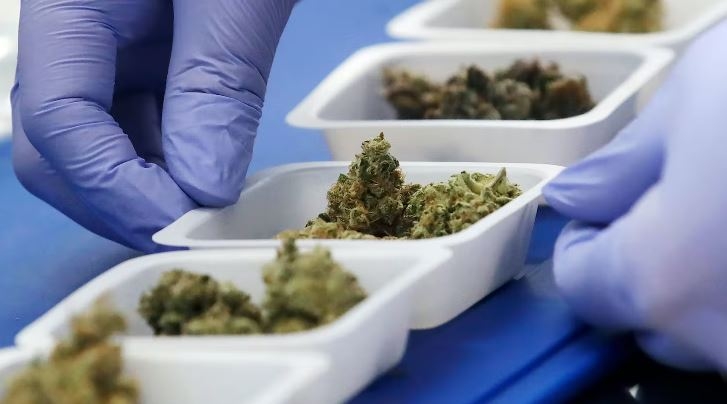According to a study on the cannabis sector that was published on Wednesday, many cannabis products that are being sold at unlicensed stores in the state of New York are not only unlawful but also tainted with hazardous microorganisms, heavy metals, and poisonous pesticides.
Smokable marijuana, edible sweets, and vaporizers bought from twenty different smoke shops and dispensaries were all subjected to laboratory testing. These tests revealed levels of eight distinct pollutants that above the legal limit, including E. coli, salmonella, nickel, and lead. According to the findings of the study conducted by the New York Medical Cannabis Industry Association, a state trade organisation, it was discovered that the potency of certain products had been incorrectly labelled.
The findings, according to the association, which represents licenced medical dispensary operators in New York. The association represents licenced medical dispensary operators in New York.
At this time, medicinal cannabis may only be purchased legally in New York by patients at one of the state’s 38 medical dispensaries, all of which are run by association members. The claim, however, comes just after state officials granted retail marijuana dispensary licences to a total of 36 businesses earlier in the month of November. Officials in charge of regulation have indicated that the first month of legal sales of cannabis for recreational use would be December.
The industry association stated in the report that “just as the Empire State is poised to achieve that significant goal, new illicit operators have sprung up, latching on to the coattails of the respected pre-existing legacy market and threatening both public health and safety as well as the long-term success of legal operators.”
Operators of medical dispensaries had, for a long time, voiced their annoyance at being excluded from New York’s retail market while illegal stores continued to do business unchecked by any kind of oversight or punishment. As the medical industry seeks changes to proposed regulations that would require them to pay a minimum of $3 million to enter the retail market, this report can be seen as an attempt to add pressure to the authorities in order to curb illegal sales. In addition, this report comes at a time when the medical industry is seeking to curtail illegal sales.
The underlying lab results demonstrate that the tests were authorised by Curaleaf, which is a national chain with four locations in the state of New York. Curaleaf has been the subject of fines, lawsuits, and product recalls in at least five states, in addition to having their licence suspended in the state of Oregon.
In a response to The New York Times, Curaleaf defended the company’s reputation and pointed out that the Oregon ban was the first time the chain had ever faced such a situation in its 12 years of business. A senior spokesperson stated that the fact that the event, which included items with incorrect labels, was uncovered indicated that regulation of the sector was functioning, and regulators had recognised the company’s cooperation with their investigation.
She said, “There are no such checks and balances for the unlawful market in New York or any other state,” and she was referring to the illegal market.
Out of a total of 40 goods, the tests confirmed the presence of pollutants in 16 of those products. Nine of the samples had a lower concentration of THC, the component of cannabis that causes intoxication, than what was stated on their labels. According to the findings of the study, however, one kind of gummy that had a label indicating that each piece had 100 milligrammes of THC really contained 200 milligrammes of THC each piece.
E. coli and salmonella were found to be the most prevalent pollutants. They were found in nine different products, the majority of which were loose flower and prerolled joints. Because of state restrictions, cannabis products that have been contaminated with E. coli or salmonella are not allowed to be sold to end users. Both categories of bacteria are capable of causing infections, which often manifest themselves with symptoms like nausea, vomiting, fever, and cramping. Extreme situations pose a risk to the patient’s life.
Michael Bianco, the president of Talon Analytical, a lab that is licenced by the state, said that none of the items that were put through the testing process were up to New York’s requirements. The unlawful items were put through a battery of testing by the business, which counts the majority of the medical cannabis enterprises as clientele.
In an interview, Dr. Bianco, who is also an anesthesiologist, said that the findings demonstrated how unlicensed businesses were working to undermine the success of those who waited to be in accordance with the law.
The attorney for Empire, Steve Zissou, has dismissed the report as a smear campaign by medical cannabis companies, particularly Curaleaf. These medical cannabis companies have been sanctioned in the past for violating testing standards, and they have much to lose in a market that is already highly competitive.
The office is now working with the city to carry out a pilot project for a collaborative interagency enforcement effort. The campaign reportedly resulted in the confiscation of more than 100,000 objects and the issue of 300 civil and criminal infractions, as stated by the Mayor Eric Adams.
Officials did not comment on whether or not they would pursue legal action against any of the individual companies that were identified in the study as having sold items that were subjected to testing.
